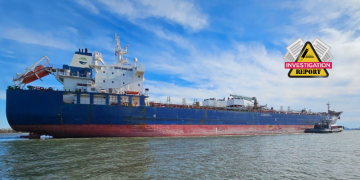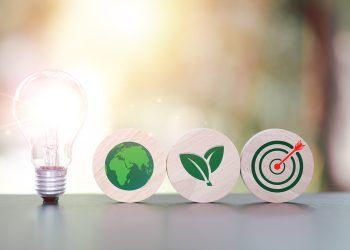In an exclusive interview to SAFETY4SEA, Joe Kramek, President & CEO of the World Shipping Council (WSC) discusses the industry’s challenges surrounding decarbonization and highlights the crucial role that its workforce plays in this transformation.
He emphasizes that ‘investing in people is just as critical as investing in ships and fuels’ and acknowledges that recruitment continues to be a challenge. However, the decarbonization journey has sparked renewed interest in maritime careers, creating a demand for a motivated and well-prepared workforce
SAFETY4SEA: What is your philosophy for the maritime industry and what are the top priorities on your agenda for the next years?
Joe Kramek: The World Shipping Council’s purpose is to shape the future growth of a sustainable, safe, and secure shipping industry. This remains our priority, even more so today as we face geopolitical headwinds, and continue the push towards a global commitment on sustainability. Our long-term priority is to decarbonize shipping. There are targets set for net-zero by 2050 – liner shipping is fully committed and investing billions in new vessels to reach that goal. An effective global measure is needed to fuel the near 1000 renewable-capable liner vessels expected to be on the water by 2030. While net-zero is still some decades away, the key decisions critical to reaching that target are happening right now.
S4S: What are the biggest challenges facing the maritime industry in the energy transition? At this moment, what are your top concerns?
J.Kr.: Investment in new containerships and vehicle carriers is accelerating. Today, about 200 liner vessels are already capable of running on renewable fuel, with an additional 700 vessels hitting the water by 2030. However, to deliver on their potential for GHG reductions, these ships need renewable fuels to be both available and commercially viable. A recent WSC EU report on shipping decarbonization made clear that both renewable-capable vessels and renewable fuels could be available to meet EU 2030 targets, but that the price gap between fossil and renewable fuels is the major barrier to making decarbonisation a reality. Currently, renewable fuels can be 3 – 4 times more expensive than traditional fossil fuels. We must have a global measure at the IMO that bridges the price gap between fossil fuels and cleaner fuels including zero and near-zero fuels. A measure that doesn’t achieve this won’t be effective in transitioning the world’s fleet, as laid out in the 2023 strategy.
S4S: What are the biggest opportunities and challenges related to the human element in shipping’s decarbonization journey?
J.Kr.: As we transition to a green fleet, ensuring a just and equitable transition for the maritime workforce is essential. The shift to new fuels and technologies introduces new risks and operational complexities – seafarers must be equipped with the training, skills, and support needed to navigate this changing landscape safely and effectively. Investing in people is just as critical as investing in ships and fuels. At the same time, this transformation presents a powerful opportunity to bring new talent into the industry.
S4S: How is the maritime industry attracting the next generation of talent, particularly in light of the industry’s decarbonization efforts?
J.Kr.: From speaking with our members, I know that shipping is increasingly attracting individuals who want to contribute to a more sustainable future. Young professionals are drawn to climate-conscious organisations that prioritise environmental impact and embrace innovative technologies. While recruitment remains a challenge, the decarbonization journey has sparked a renewed interest in maritime careers. As more green ships are brought into service – particularly in the liner sector, which has ordered more than twice as many green-fuel vessels as any other sector – a motivated and well-prepared workforce will be vital to enabling this transition.
The views presented are only those of the authors and do not necessarily reflect those of SAFETY4SEA and are for information sharing and discussion purposes only.





























































